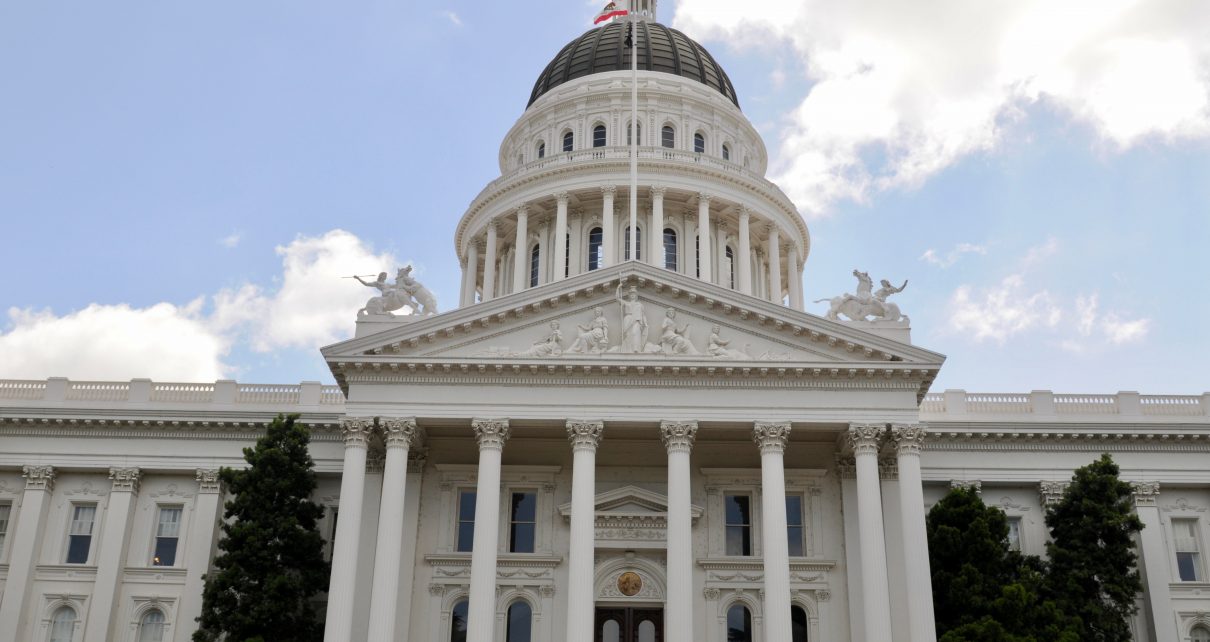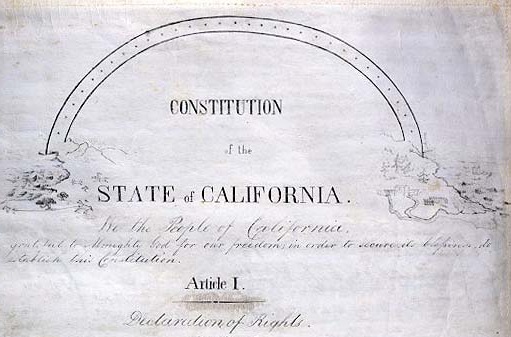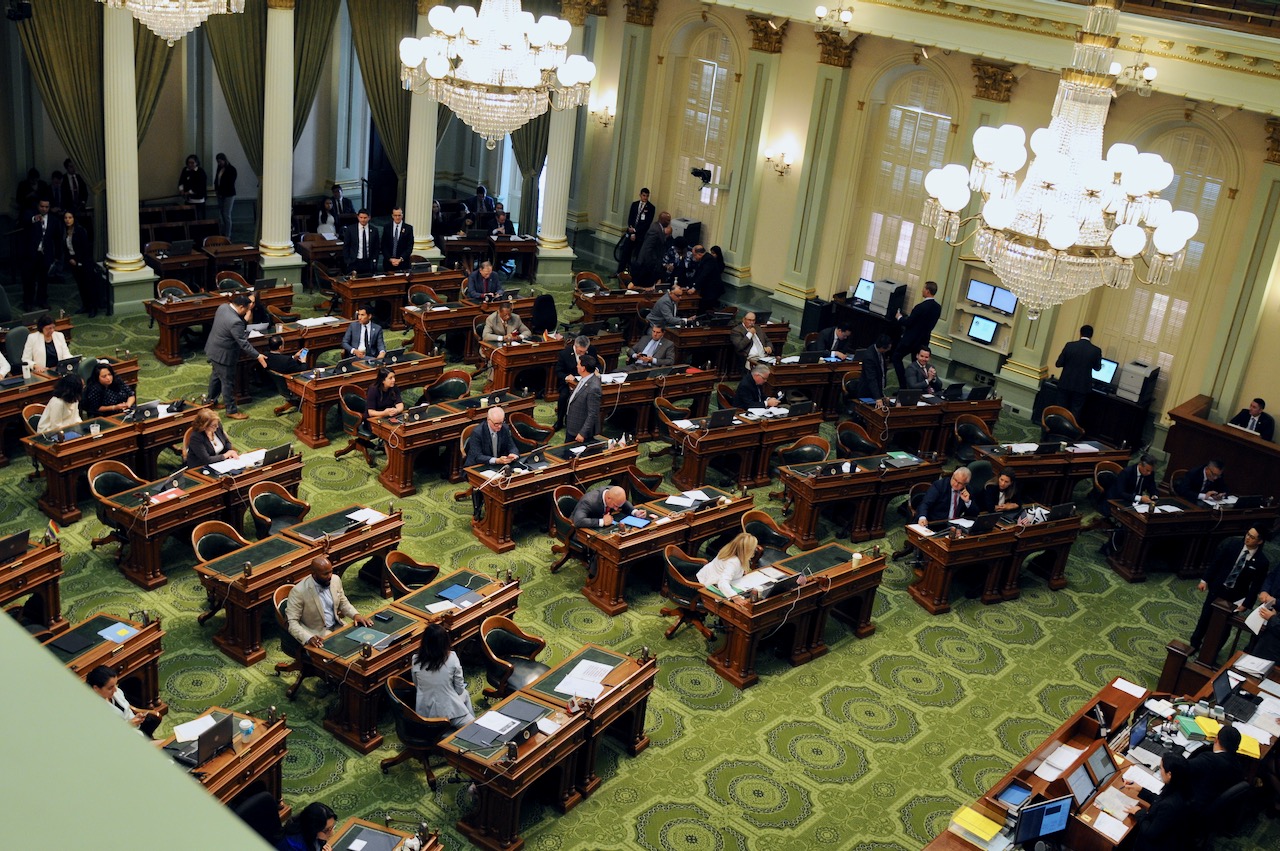
State Capitol Building. (Photo: Kevin Sanders for California Globe)
Effective Dates of Statutes in California Legislation
Urgency clauses, operation of statutes and resolutions
By Chris Micheli, October 7, 2019 6:05 am
In the California Legislature, legislation that contains an urgency clause takes effect immediately upon the Governor signing the bill and it being chaptered by the Secretary of State. With the exception of measures which take effect immediately, tax levies, and bills calling an election, bills enacted in the first year of the regular session before the Legislature adjourns for the “interim study recess” go into effect on January 1 of the following year. This rule applies in the second year of the Session as well.
The general rule for the effective dates of statutes is found in the California Constitution, Article IV, Section 9(c). That section provides:
(c) (1) Except as provided in paragraphs (2) and (3) of this subdivision, a statute enacted at a regular session shall go into effect on January 1 next following a 90-day period from the date of enactment of the statute and a statute enacted at a special session shall go into effect on the 91st day after adjournment of the special session at which the bill was passed.
(2) A statute, other than a statute establishing or changing boundaries of any legislative, congressional, or other election district, enacted by a bill passed by the Legislature on or before the date the Legislature adjourns for a joint recess to reconvene in the second calendar year of the biennium of the legislative session, and in the possession of the Governor after that date, shall go into effect on January 1 next following the enactment date of the statute unless, before January 1, a copy of a referendum petition affecting the statute is submitted to the Attorney General pursuant to subdivision (d) of Section 10 of Article II, in which event the statute shall go into effect on the 91st day after the enactment date unless the petition has been presented to the Secretary of State pursuant to subdivision (b) of Section 9 of Article II.
(3) Statutes calling elections, statutes providing for tax levies or appropriations for the usual current expenses of the State, and urgency statutes shall go into effect immediately upon their enactment.
Chapter 6 of the California Government Code also deals with the operation of statutes and resolutions. The general rule concerning the effective dates of statutes is found in Section 9600(a), which provides that a statute enacted at a regular session shall go into effect on January 1 next following a 90-day period from the date of enactment of the statute and a statute enacted at a special session shall go into effect on the 91st day after adjournment of the special session at which the bill was passed.
The exceptions to this general rule are found in Section 9600(b) of the Government Code, which provides that statutes calling elections, statutes providing for tax levies or appropriations for the usual current expenses of the state, and urgency statutes shall go into effect immediately upon their enactment.
Readers should also be aware of Government Code Section 17580, which provides:
No bill, except a bill containing an urgency clause, introduced or amended on or after January 1, 1989, that mandates a new program or higher level of service requiring reimbursement of local agencies or school districts pursuant to Section 6 of Article XIII B of the California Constitution shall become operative until the July 1 following the date of on which the bill takes effect, unless the bill specifically makes this section inapplicable or contains an appropriation for the reimbursement or a specification that reimbursement be made pursuant to Section 17610.
Finally, readers should be aware of the rules regarding initiatives and referendums, which are found in the Constitution, Article II, Section 10 (statutes) and Article XVIII, Section 4 (constitutional amendments or revisions).
Under these rules, for example, a non-urgency bill passed on September 5, 2017 would take effect on January 1, 2018. A non-urgency measure, however, that is enacted in the second year of the two-year session would go into effect on January 1 following a 90-day period from the date of enactment. By contrast, statutes enacted at a special session take effect on the 91st day after the adjournment of the special session at which they were passed.
The delays in the effective dates of the statutes enacted at regular and special sessions provide a 90-day interval between the enactment and the effective date of the statute as is required by the Constitution in order to permit the circulation and presentation of a referendum petition requesting that the statute, or a part of it, be submitted to the electorate.
- Offenses in California Navigable Waters - August 13, 2025
- The Division of the Community Estate in California - August 12, 2025
- Port Facility Construction in California - August 11, 2025








Very comprehensive and helpful, thank you!